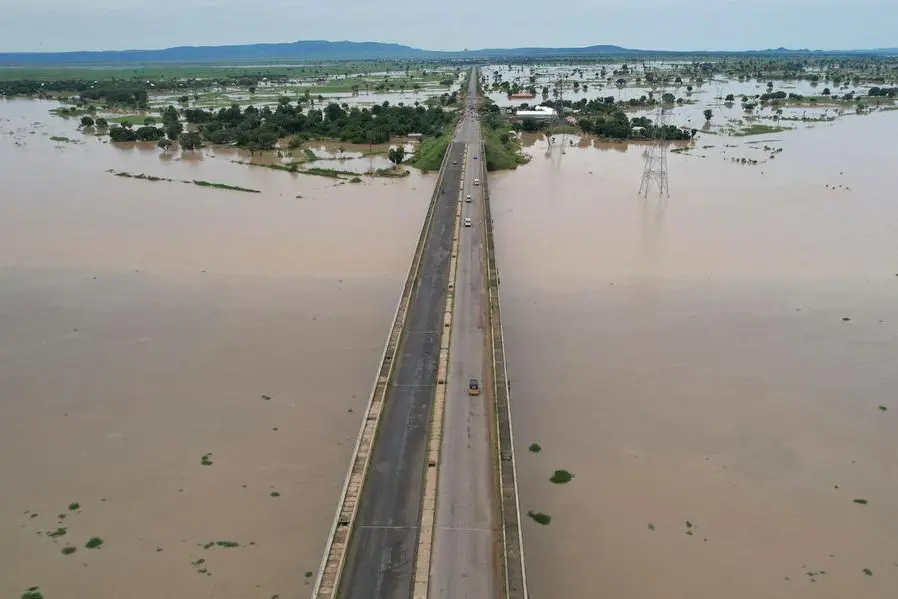PHOTO
A United States of America-trained Environmental Manager, Kehinde Ositimehin, has advocated for urgent and strategic measures to tackle the persistent issue of water pollution exacerbated by frequent and severe flooding across the nation.
Ositimehin expressed concerns following the increasing severity of flooding incidents that have ravaged many parts of the country, exacerbating public health and environmental safety concerns.
Ositimehin stressed that the intersection of flooding and water pollution forms a threat that endangers public health, undermines economic development, and degrades natural ecosystems.
Related PostsBiotech company apologises to Benue residents over water pollutionExpert unravels climate change impact on water resourcesLagos Assembly calls LASEPA, Min. of Environment to investigate water pollution at Somolu
According to her, “Flooding in Nigeria is not just a seasonal challenge—it’s a growing crisis that threatens our economic stability, public health, and environmental safety,”
She cited a troubling pattern of increased rainfall and rising water levels in rivers, exacerbated by climate change and deforestation, which have led to more frequent and severe floods.
She explained that urban areas, in particular, suffer due to non-compliant building practices and inadequate drainage, turning streets into waterways and homes into islands during the rainy season.
Ositimehin noted that over 600 lives were lost and hundreds of thousands displaced, with immense damage to agricultural lands and infrastructure during the 2022 flood alone in Nigeria.
“This event underscored the vulnerability of Nigeria’s current flood management systems and highlighted the urgent need for robust infrastructure and effective community engagement.
“Each year, floods wash a toxic mix of industrial chemicals, raw sewage, plastics, and other pollutants into our rivers and lakes, severely contaminating these critical water sources,” Ositimehin said
She pointed out that such contamination not only poses immediate health risks through waterborne diseases but also leads to long-term environmental damage that can take decades to remediate.
ALSO READ: Addressing Water Pollution in Nigeria: A call for sustainable solutions and community engagement
She said, “Recent studies have shown alarming levels of pollutants in water bodies post-flooding, particularly near urban centres such as Lagos, where the confluence of industrial waste and insufficient waste management infrastructure makes the situation risky.
“These pollutants do not just affect water quality; they disrupt entire aquatic ecosystems, leading to loss of biodiversity and rendering the water unsafe for human consumption and agricultural use.
“Addressing flood risks is not just about averting economic losses but also about preserving our community’s health and the environment,”
She emphasised the compound nature of flooding in Nigeria, which not only displaces communities but also disrupts waste management systems, leading to escalated water pollution issues.
She stressed the importance of integrated solutions that encompass both infrastructure development and community engagement.
“Efficient flood management requires a combination of advanced engineering solutions, such as the construction of flood barriers and the enhancement of drainage systems, alongside community-based initiatives that encourage local participation in flood prevention measures,“ she said.
Ositimehin proposed a comprehensive and integrated approach to address this critical issue, which includes the adoption of green infrastructure, enhancement of regulatory frameworks, and active community participation.
She advocated for the creation of more constructed wetlands and riparian buffer zones, which act as natural filters that trap and break down pollutants before they can reach larger bodies of water, calling for the strict enforcement of environmental regulations concerning industrial discharge and urban development.
“We need to enforce existing laws more rigorously and introduce tougher penalties for non-compliance.
“Industries must be held accountable for their environmental impact, and robust monitoring systems must be put in place to ensure these standards are met,” she asserted
Recognising the power of community action, Ositimehin emphasizes the need for educational programs that inform the public about the critical link between flood management and water pollution.
She opined that community-led initiatives, such as local water quality testing and clean-up campaigns, can significantly empower residents and foster a proactive attitude towards environmental stewardship.
According to her, the urgency of implementing these strategies, calling on all stakeholders—government bodies, businesses, non-governmental organizations, and local communities—to unite in their efforts.
“This is a call to action for all of us. Our collective commitment to these measures is essential for preserving Nigeria’s water quality and securing a healthier, more sustainable future for our nation,” she said
Copyright © 2022 Nigerian Tribune Provided by SyndiGate Media Inc. (Syndigate.info).




















